Ways To Cure Blood Cancer
Explore modern treatments and breakthroughs in blood cancer, from chemotherapy to CAR T-cell therapy. Learn how patients achieve remission and long-term survival.

Written by Dr. Mohammed Kamran
Reviewed by Dr. Shaik Abdul Kalam MD (Physician)
Last updated on 13th Jan, 2026

Introduction
Hearing the words "you have blood cancer" can be overwhelming. But in today's world, this diagnosis is far from a dead end. Significant breakthroughs in medical science have transformed the landscape of blood cancer treatment, turning what were once fatal diseases into manageable conditions—and in many cases, leading to complete cures. Blood cancer, which includes leukaemia, lymphoma, and myeloma, affects the production and function of your blood cells. This article is a comprehensive guide designed to demystify the journey. We will explore the various types of blood cancer, break down the sophisticated diagnostic process, and, most importantly, delve into the modern ways to cure blood cancer or achieve long-term remission. From established treatments like chemotherapy to revolutionary approaches like immunotherapy, we'll provide you with the knowledge and hope needed to face this challenge head-on.
Understanding Blood Cancer: More Than One Disease
Before diving into cures, it's crucial to understand what we're fighting. Blood cancer originates in the bone marrow, where blood is produced, or in the lymphatic system. The core problem is the rapid production of abnormal blood cells, which disrupts the normal function of blood—fighting infection, carrying oxygen, and controlling bleeding.
What is Blood Cancer? A Breakdown of the Basics
Normally, blood cells follow an orderly lifecycle: they grow, mature, and die. In blood cancer, this process is broken. Mutated, immature blood cells grow uncontrollably, crowding out healthy cells in the bone marrow and bloodstream. This leads to a range of symptoms like fatigue, frequent infections, bruising, and weight loss. Understanding this basic mechanism is key to understanding how treatments work: they aim to destroy these abnormal cells and restore healthy blood production.
The Main Types: Leukaemia, Lymphoma, and Myeloma
The term "blood cancer" is an umbrella for several distinct diseases, each requiring a specific approach. The three main types are:
- Leukaemia: This cancer is found in the blood and bone marrow. It is characterised by the rapid production of abnormal white blood cells, which are unable to fight infection and impair the marrow's ability to produce red blood cells and platelets. It can be acute (fast-growing) or chronic (slow-growing).
- Lymphoma: This type affects the lymphatic system, a network of vessels and glands that helps fight infection.Lymphoma develops in lymphocytes (a type of white blood cell), causing them to become malignant and multiply, forming tumours in lymph nodes and other tissues. Hodgkin lymphoma and non-Hodgkin lymphoma are the two main categories.
- Multiple Myeloma: This cancer targets plasma cells, which are white blood cells that produce antibodies. In myeloma,
cancerous plasma cells accumulate in the bone marrow, crowding out healthy cells and causing bone damage, kidney problems, and a weakened immune system.
Consult a Haematologist or an Oncologist for the best advice
How is Blood Cancer Diagnosed? The Critical First Step
An accurate diagnosis is the cornerstone of effective treatment. Since symptoms can be vague and mimic other illnesses, doctors use a combination of tools to confirm the presence and type of blood cancer.
Key Diagnostic Tests: From Blood Work to Biopsies
The journey often begins with a routine blood test that shows abnormal cell counts. If blood cancer is suspected, a
haematologist (a blood cancer specialist) will recommend further tests:
- Complete Blood Count (CBC): This common test measures the number of red cells, white cells, and platelets. Unusual
levels can be a red flag. - Bone Marrow Aspiration and Biopsy: This is the definitive test. A needle is used to extract a small sample of liquid bone
marrow and a tiny piece of bone from the hip. This sample is analysed under a microscope to look for cancerous cells. - Imaging Tests: CT, PET, or MRI scans help determine if the cancer has spread to lymph nodes or other organs, which
is crucial for staging lymphoma and myeloma. - Cytogenetic Analysis: This test looks for specific changes in the chromosomes of the cancerous cells, which can help
determine the best targeted therapy.
If you are experiencing persistent, unexplained symptoms, it's essential to consult a doctor. Apollo24|7 offers convenient online consultations where you can discuss your concerns with a qualified haematologist and get guidance on the necessary diagnostic steps, including home collection for initial blood tests.
Modern Treatment Arsenal: Pathways to a Cure
The concept of a "cure" for blood cancer often means achieving complete remission, where no signs of cancer can be detected, and maintaining it long-term. The choice of treatment is highly personalised, depending on the type, stage, genetic markers, and the patient's overall health.
Chemotherapy and Radiation: The Foundational Warriors
These are the traditional workhorses of cancer treatment.
- Chemotherapy uses powerful drugs to kill fast-dividing cancer cells. It can be given orally or intravenously and is often
used in cycles. While effective, it can also affect healthy cells, causing side effects like hair loss and nausea. - Radiation Therapy uses high-energy beams to target and destroy cancer cells in a specific area. It is particularly useful for treating localised lymphoma or preparing the body for a stem cell transplant.
Stem Cell Transplant: A Chance for a New Beginning
Also known as a bone marrow transplant, this procedure is a potentially curative option for aggressive blood cancers. It involves wiping out the patient's diseased bone marrow with high-dose chemotherapy and/or radiation. Then, healthy blood-forming stem cells from a donor (allogeneic) or from the patient themselves (autologous) are infused into the bloodstream. These new cells migrate to the bone marrow and begin producing healthy blood cells, essentially giving the patient a new immune system.
Targeted Therapy: Precision Medicine in Action
Unlike chemotherapy, which is a broad-spectrum attack, targeted therapy uses drugs designed to identify and attack specific molecules (or "targets") on cancer cells. For example, Imatinib (Gleevec) targets a specific abnormal protein in chronic myeloid leukaemia (CML) cells, effectively controlling the disease with fewer side effects. This approach represents a major shift towards personalised medicine.
Immunotherapy: Empowering the Body's Own Army
This revolutionary approach harnesses the power of the patient's own immune system to fight cancer. It works by "unmasking" cancer cells or boosting the immune system's ability to recognise and destroy them.
CAR T-Cell Therapy: A Living Drug Revolution
This is a groundbreaking form of immunotherapy. A patient's T-cells (a type of immune cell) are collected and genetically engineered in a lab to produce chimeric antigen receptors (CARs) on their surface. These CARs allow the T-cells to recognise and bind to specific proteins on cancer cells. The "supercharged" CAR T-cells are then multiplied and infused back into the patient, where they seek out and destroy the cancer cells. CAR T-cell therapy has shown remarkable success in treating certain types of relapsed or refractory leukaemias and lymphomas.
The Role of Clinical Trials: Accessing Tomorrow's Cures Today
Clinical trials are research studies that test new treatments or new combinations of existing treatments. For patients with hard-to-treat blood cancers, participating in a clinical trial can provide access to cutting-edge therapies not yet available to the public. These trials are the reason we have advancements like CAR T-cell therapy today. Discussing trial options with your doctor is a proactive step in your care journey.
Integrative and Supportive Care: Healing the Whole Person
Curing cancer isn't just about attacking diseased cells; it's about supporting the whole person. Integrative care includes:
- Nutritional Support: A dietitian can help manage side effects and maintain strength.
- Pain Management: Specialists ensure patients are as comfortable as possible.
- Psychological Counselling: Addressing the emotional toll is vital for mental well-being.
These services work alongside medical treatments to improve quality of life and treatment outcomes.
The Future of Blood Cancer Treatment: What's on the Horizon?
Research is continuously pushing boundaries. Scientists are developing next-generation immunotherapy drugs, bispecific antibodies that can engage two targets at once, and vaccines that could prevent blood cancer from recurring. The future is moving towards even more personalised, effective, and less toxic treatments.
Conclusion
The fight against blood cancer has entered an era of unprecedented hope. While the journey is challenging, the arsenal of treatments available today is more powerful and precise than ever before. From the precision of targeted therapy to the revolutionary potential of immunotherapy, the path to a cure is no longer a single road but a multi-lane highway. Remember, a diagnosis of blood cancer is the beginning of a battle, not the end of the war. By staying informed, working closely with a dedicated medical team, and exploring all available options, including clinical trials, patients and their families can face the future with courage and optimism. If you or a loved one is on this journey, take the next step: consult a specialist on Apollo24|7 to discuss a personalised treatment plan tailored to your specific diagnosis and needs.
Consult a Haematologist or an Oncologist for the best advice
Consult a Haematologist or an Oncologist for the best advice

Dr Garima Nirmal
Paediatric Haematologist
8 Years • MBBS, MD, DM
Delhi
Apollo Hospitals Indraprastha, Delhi

Dr. Sanchayan Mandal
Medical Oncologist
17 Years • MBBS, DrNB( MEDICAL ONCOLOGY), DNB (RADIOTHERAPY),ECMO. PDCR. ASCO
Kolkata
MCR SUPER SPECIALITY POLY CLINIC & PATHOLOGY, Kolkata

Dr.sanchayan Mandal
Medical Oncologist
17 Years • MBBS, DrNB( MEDICAL ONCOLOGY), DNB (RADIOTHERAPY),ECMO. PDCR. ASCO
Kolkata
Dr. Sanchayan Mandal Oncology Clinic, Kolkata
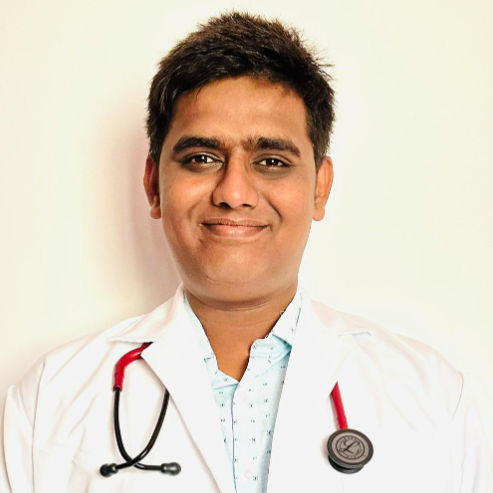
Dr. Sushith C
General Physician
2 Years • MBBS
Bengaluru
PRESTIGE SHANTHINIKETAN - SOCIETY CLINIC, Bengaluru
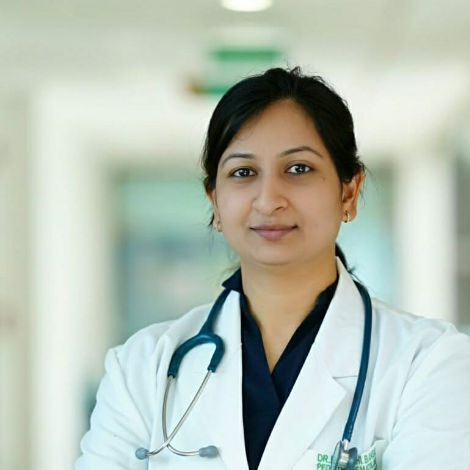
Dr Minakshi Bansal
Paediatric Haematologist
8 Years • MBBS, MD PEDIATRICS, FIAP (PHO)
Delhi
Apollo Hospitals Indraprastha, Delhi
(25+ Patients)
Consult a Haematologist or an Oncologist for the best advice

Dr Garima Nirmal
Paediatric Haematologist
8 Years • MBBS, MD, DM
Delhi
Apollo Hospitals Indraprastha, Delhi

Dr. Sanchayan Mandal
Medical Oncologist
17 Years • MBBS, DrNB( MEDICAL ONCOLOGY), DNB (RADIOTHERAPY),ECMO. PDCR. ASCO
Kolkata
MCR SUPER SPECIALITY POLY CLINIC & PATHOLOGY, Kolkata

Dr.sanchayan Mandal
Medical Oncologist
17 Years • MBBS, DrNB( MEDICAL ONCOLOGY), DNB (RADIOTHERAPY),ECMO. PDCR. ASCO
Kolkata
Dr. Sanchayan Mandal Oncology Clinic, Kolkata

Dr. Sushith C
General Physician
2 Years • MBBS
Bengaluru
PRESTIGE SHANTHINIKETAN - SOCIETY CLINIC, Bengaluru

Dr Minakshi Bansal
Paediatric Haematologist
8 Years • MBBS, MD PEDIATRICS, FIAP (PHO)
Delhi
Apollo Hospitals Indraprastha, Delhi
(25+ Patients)
More articles from Blood Cancer
Frequently Asked Questions
1. Is blood cancer completely curable?
Yes, many types of blood cancer are now considered curable, especially when diagnosed early. The term 'cure' often means the cancer has been in complete remission for a long period (often five years or more) with no signs of returning. Survival rates have improved dramatically for leukaemias and lymphomas.
2. What are the first signs of blood cancer?
Common early signs can be vague and include persistent fatigue, unexplained fever or night sweats, unintentional weight loss, frequent infections, easy bruising or bleeding, bone pain, and swollen lymph nodes in the neck, armpits, or groin.
3. What is the latest treatment for leukaemia?
The latest treatment for leukaemia often involves advanced immunotherapies like CAR T-cell therapy and new targeted therapy drugs that focus on specific genetic mutations in the cancer cells. These treatments offer new hope for patients who have not responded to traditional chemotherapy.
4. How successful is a stem cell transplant?
Success varies widely based on the type of blood cancer, the patient's age and health, and the match with the donor. For some cancers, allogeneic transplants can be curative. Success is measured by engraftment (the new cells starting to grow), remission, and long-term survival without major complications.
5. What is the life expectancy after a blood cancer diagnosis?
Life expectancy is highly individual and depends on the specific type and stage of cancer, the patient's response to treatment, and their overall health. Thanks to modern treatments, many people live for decades after their diagnosis and enjoy a good quality of life. Your oncologist can provide a prognosis based on your specific situation.
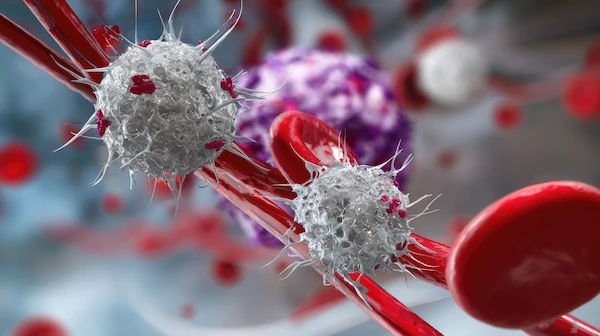
.webp)
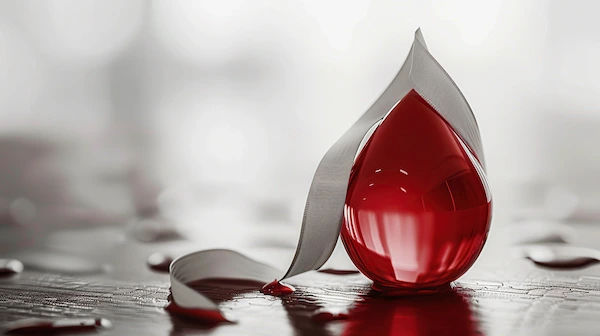
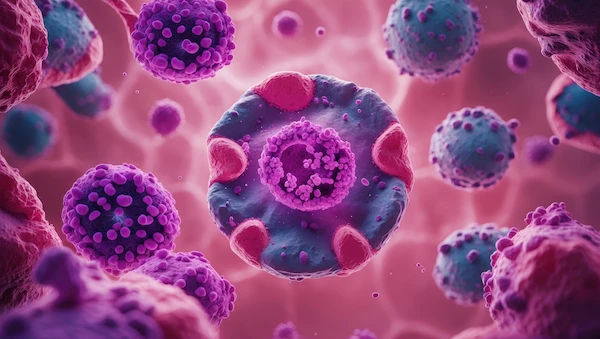
.webp)